News
-
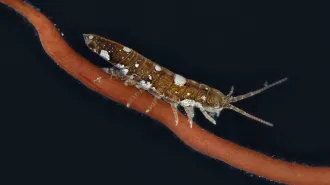 Life
LifeLike bees of the sea, crustaceans ‘pollinate’ seaweed
Crustaceans shuttle around red algae’s sex cells, helping the seaweed reproduce in a manner remarkably similar to flower pollination.
By Jake Buehler -
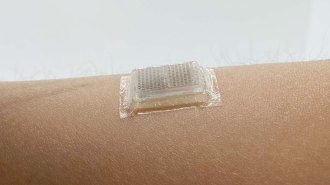 Health & Medicine
Health & MedicineThis stick-on ultrasound patch could let you watch your own heart beat
A new, coin-sized ultrasound probe can stick to the skin like a Band-Aid for up to two days straight, marking a milestone in personalized medicine.
By Asa Stahl -
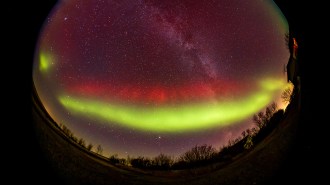 Space
SpaceAmateur astronomers’ images of a rare double aurora may unlock its secrets
With breathtaking videos, citizen scientists have shown researchers a new pattern of auroras that may solve the mystery behind a strange red glow.
By Asa Stahl -
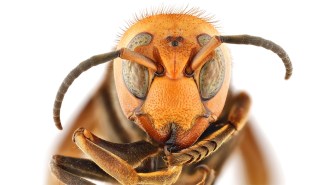 Animals
Animals‘Murder hornets’ have a new common name: Northern giant hornet
Anti-Asian hate crimes helped push U.S. entomologists to give a colorful insect initially dubbed the Asian giant hornet a less inflammatory name.
By Susan Milius -
 Anthropology
AnthropologyFamine and disease may have driven ancient Europeans’ lactose tolerance
Dealing with food shortages and infections over thousands of years, not widespread milk consumption, may be how an ability to digest dairy evolved.
By Bruce Bower -
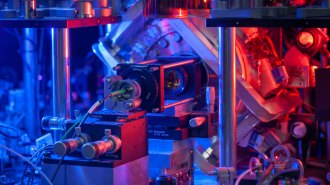 Quantum Physics
Quantum PhysicsQuantum entanglement makes quantum communication even more secure
Bell tests proved that quantum mechanics really is “spooky.” Now they’ve made quantum communication even more hacker-proof.
-
 Climate
ClimateHumans may not be able to handle as much heat as scientists thought
Humans’ capacity to endure heat stress may be lower than previously thought — bad news as climate change leads to more heat waves around the globe.
-
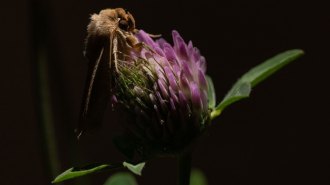 Life
LifeMoths pollinate clover flowers at night, after bees have gone home
Camera footage reveals that moths make roughly a third of the visits to red clover, highlighting the overlooked role of nighttime pollinators.
By Jake Buehler -
 Environment
EnvironmentHow to make jet fuel from sunlight, air and water vapor
Solar kerosene could one day replace petroleum-derived jet fuel in airplanes and help stabilize greenhouse gas emissions.
By Nikk Ogasa -
 Math
MathHere’s the quickest way to grill burgers, according to math
The fastest way to cook a burger involves flipping the patty about three to four times, a mathematician says.
By Anil Oza -
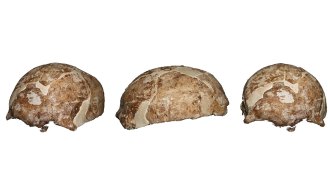 Humans
HumansAncient DNA links an East Asian Homo sapiens woman to early Americans
Genetic clues point to a Late Stone Age trek from southwestern China to North America.
By Bruce Bower -
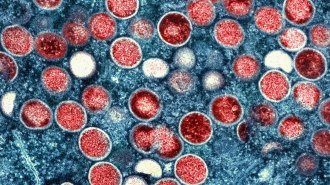 Health & Medicine
Health & MedicineThe world is ‘losing the window’ to contain monkeypox, experts warn
As the global monkeypox outbreak surges, the world is giving the “virus room to run like it never has before,” researchers say.